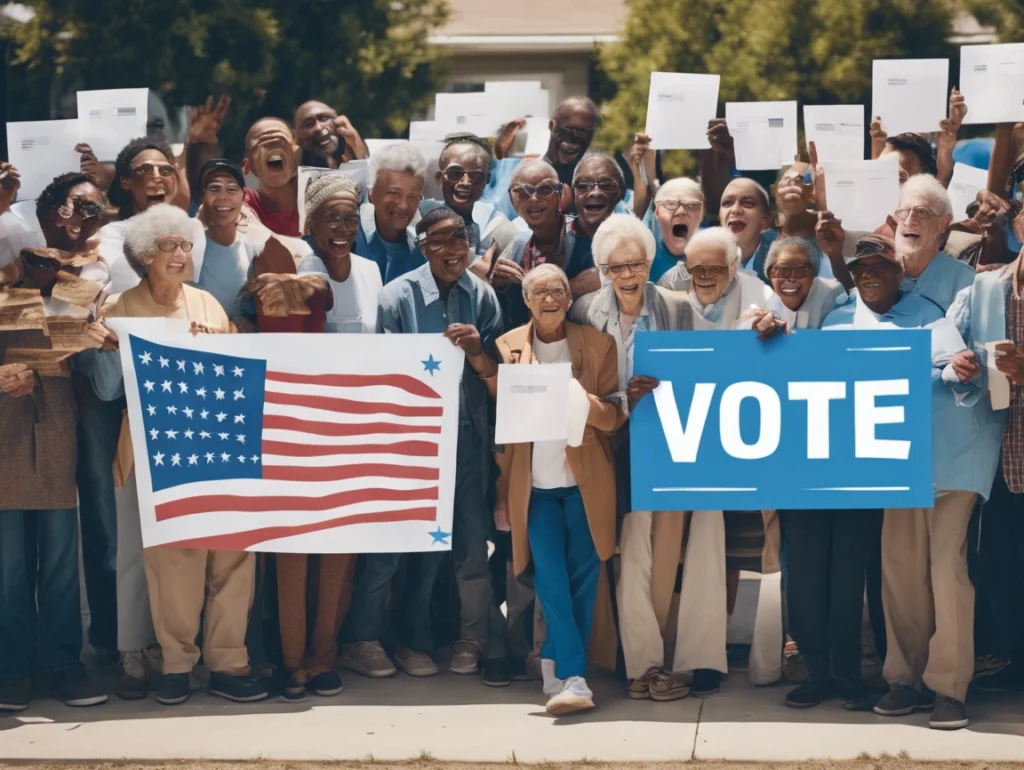See if you are eligible to vote absentee, early, or on Election Day. Get voter ID requirements. And find out if you have to vote for the party you are registered with.
-
Voting on Election Day
Find out when to vote and where your polling station is. Learn what form of ID to bring with you on Election Day.
-
Who can and cannot vote
Learn if you meet the qualifications to vote in federal, state, and local elections.
Who can vote?
You can vote in U.S. federal, state, and local elections if you:
- Are a U.S. citizen (some areas allow non-citizens to vote in local elections only), including:
- U.S. citizens living outside of the United States. Learn more from the U.S. Department of State about voting as a U.S. citizen abroad.
- U.S. citizens who were born abroad and have never lived in the United States. Your eligibility to vote is based on the state where your parents last lived or were registered to vote. Find out what states may permit you to vote absentee.
- Dual citizens living in the United States or abroad
- Meet your state’s residency requirements
- You can be experiencing homelessness and still meet these requirements.
- Are 18 years old on or before Election Day
- In almost every state, you can register to vote before you turn 18 if you will be 18 by Election Day.
- Some states allow 17-year-olds who will be 18 by Election Day to vote in primaries.
- Are registered to vote by your state’s voter registration deadline. North Dakota does not require voter registration.
Who cannot vote?
- Non-citizens, including permanent legal residents, cannot vote in federal, state, and most local elections.
- Some people cannot vote after being convicted of a felony or if they are currently serving time for other types of crimes. Rules are different in each state. Check this guide from vote.gov to understand the laws in your state.
- Some people who have a mental disability may not be able to vote. Learn about your voting rights. Rules vary by state.
- U.S. citizens residing in U.S. territories cannot vote for president in the general election.
Check with your state or local election office for any questions about who can and cannot vote.
- Are a U.S. citizen (some areas allow non-citizens to vote in local elections only), including:
-
Do you have to vote for the party you are registered with?
In general elections, you do not have to vote for the candidate from your party. Depending on your state, rules for voting in primaries or caucuses may be different. Learn more.
-
Find out when to vote
The next presidential election will be on November 5, 2024. But the dates of other elections can vary. Learn when you can vote for your federal, state, and local representatives.
Find your state and get a list of dates for:
- Presidential primaries
- General elections
- State and local elections
- Early and absentee voting
-
Absentee voting and voting by mail
Absentee voting and vote-by-mail allow voting before Election Day by mail or drop-off. Learn how they are different, how to get a ballot in the U.S. or abroad, and meet deadlines.
-
Early in-person voting
Early voting allows you to vote in person before Election Day. Learn where to get more details about early voting in your state.
Can you vote early in your state?
Sometimes circumstances make it hard or impossible for you to vote on Election Day. But most states let you vote in person during a designated early voting period.
Use this map to see if your state allows early voting in person.
- In most states, you do not need an excuse to vote early.
- In some states, you may need to request an absentee ballot to be able to vote early.
Where and when is early voting
Check with your state or local election office to find out:
- When and where to vote early
- Specific rules in your area
Depending on your state, you may need to check under “absentee voting” if you do not see information listed for early voting.



